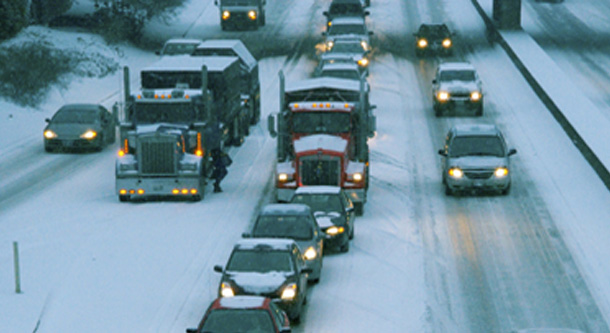
WASHINGTON, D.C. (January 3, 2023)—The late December winter storm and its frigid temperatures caused gas prices to spike, with refineries as far south as Texas and the Gulf Coast forced to shut down temporarily. The storm also caused holiday travelers to fuel up and hit the road early to beat the bad weather, leading to a spike in overall gas demand. The national average for a gallon of gas rose 12 cents since last week to hit $3.22.
“The cost of gas will likely rise a bit more before this surge stalls due to less expensive oil and a return to seasonal driving patterns,” said Andrew Gross, AAA spokesperson. “But 2022 will go down as a record year with a national annual average of $3.96. According to fuel expert Tom Kloza of OPIS, that’s 40 to 50 cents more than the previous peak years of 2011 through 2014.”
According to data from the Energy Information Administration (EIA), gas demand rose from 8.7 to 9.3 million b/d last week. Meanwhile, total domestic gasoline stocks fell by 3 million bbl to 223 million bbl. More demand and less supply pushed pump prices higher.
Today’s national average of $3.22 is 20 cents less than a month ago and six cents less than a year ago.

Quick Stats
The nation’s top 10 largest weekly increases: Delaware (+33 cents), Florida (+30 cents), Maryland (+25 cents), Michigan (+21 cents), Texas (+20 cents), Ohio (+20 cents), South Carolina (+20 cents), Missouri (+20 cents), Alabama (+18 cents) and Wisconsin (+17 cents).
The nation’s top 10 most expensive markets: Hawaii ($5.02), California ($4.42), Nevada ($3.97), Washington ($3.86), Oregon ($3.73), Alaska ($3.71), Pennsylvania ($3.63), Washington, D.C. ($3.47), Idaho ($3.43) and New York ($3.41).
Oil Market Dynamics
At the close of Friday’s formal trading session, WTI increased by $1.86 to settle at $80.26. A weaker dollar contributed to rising crude prices. Crude prices rose despite the EIA reporting that total domestic commercial crude stocks increased by 800,000 bbl to 419 million bbl. The increase signals that oil demand may be weakening amid ongoing market concerns that a recession or economic slowdown could occur this year. If economic growth falters, crude demand will likely drop alongside prices.
Drivers can find current gas prices along their route using the AAA TripTik Travel planner.
###
